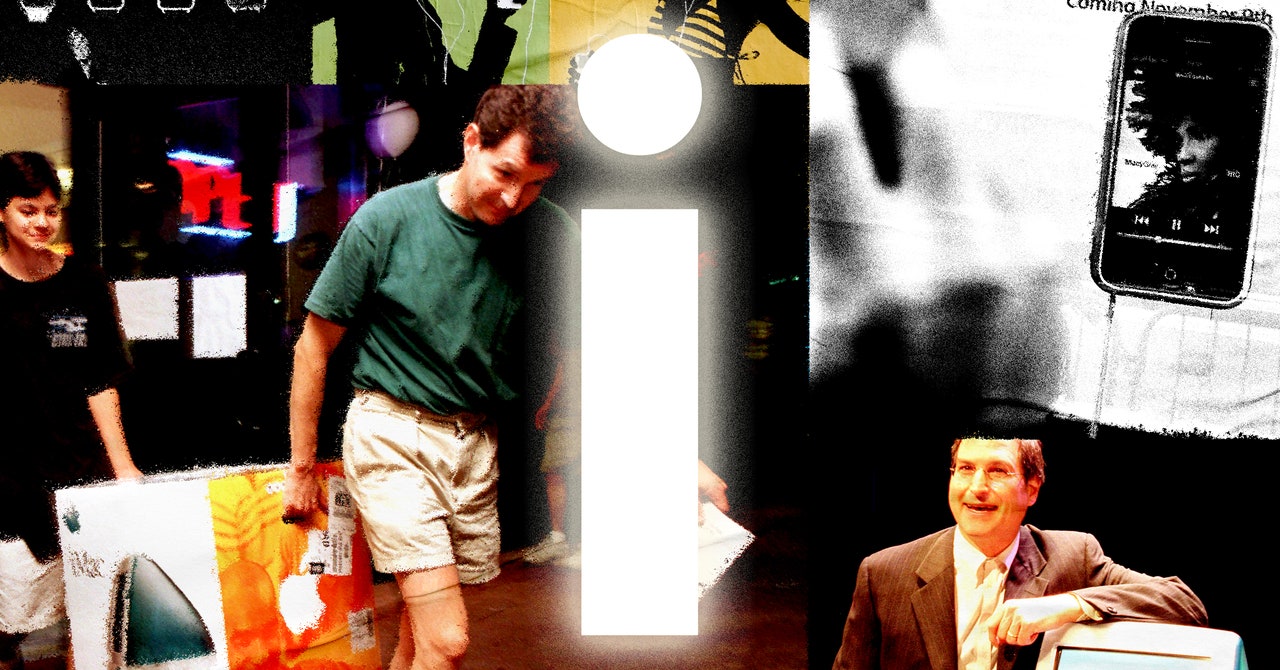Review sản phẩm
Kết thúc của ‘iPhone’: Sự thay đổi lớn tren WIRED
Giới thiệu The End of ‘iPhone’ | WIRED
Cuộc kết thúc của ‘iPhone’ là một bài báo của WIRED, nói về sự tiến bộ trong công nghệ và cuộc cách mạng của những chiếc điện thoại thông minh mới.
Kết thúc của ‘iPhone’ | WIRED
Bạn đã muốn tìm kiếm một sản phẩm điện thoại di động đáng tin cậy, hiện đại và đẳng cấp? Hãy đến với Queen Mobile – nơi đánh giá sản phẩm chính xác và mua ngay để sở hữu ngay chiếc điện thoại ưng ý của bạn!
#QueenMobile #ĐánhGiáSảnPhẩm #MuaNgay #ĐiệnThoạiDiĐộng
Mua ngay sản phẩm tại Việt Nam:
QUEEN MOBILE chuyên cung cấp điện thoại Iphone, máy tính bảng Ipad, đồng hồ Smartwatch và các phụ kiện APPLE và các giải pháp điện tử và nhà thông minh. Queen Mobile rất hân hạnh được phục vụ quý khách….
_____________________________________________________
Mua #Điện_thoại #iphone #ipad #macbook #samsung #xiaomi #poco #oppo #snapdragon giá tốt, hãy ghé [𝑸𝑼𝑬𝑬𝑵 𝑴𝑶𝑩𝑰𝑳𝑬]
✿ 149 Hòa Bình, phường Hiệp Tân, quận Tân Phú, TP HCM
✿ 402B, Hai Bà Trưng, P Tân Định, Q 1, HCM
✿ 287 đường 3/2 P 10, Q 10, HCM
Hotline (miễn phí) 19003190
Thu cũ đổi mới
Rẻ hơn hoàn tiền
Góp 0%
Thời gian làm việc: 9h – 21h.
KẾT LUẬN
Cuộc cách mạng công nghệ đã đến với Apple khi hãng công nghệ lớn nhất thế giới đã chính thức thông báo kết thúc dòng sản phẩm iPhone. Thay vào đó, hãng sẽ ra mắt một thiết bị hoàn toàn mới, mang đến trải nghiệm công nghệ độc đáo và tiên tiến hơn bao giờ hết. Điều này đã khiến người mua đứng ngồi không yên và mong chờ sự xuất hiện của sản phẩm mới mẻ từ Apple.
If Apple did drop the “i,” it would hardly be the company’s most significant makeover. Segall points out that the company is familiar with overhauls, and he believes Apple CEO Tim Cook wouldn’t lose any sleep over dropping the Jobs-era prefix. Apple did not respond to a request for comment on this article.
“Apple has done some amazingly bold, rash, risky things in the past,” says Segall. “Every time they changed processors or transformed the OS, experts were like, ‘Oh my, seriously? You’re gonna rebuild the operating system, or you’re going to transition to a whole new hardware platform?’ But Apple did it.”
He acknowledges that today’s Apple is far bigger than the Jobs-era Apple—with more cash at stake and more jobs on the line—and, therefore, it might be more risk averse. However, it also still wants to be known as an innovator, and sticking with a product name for brand equity reasons alone isn’t a very Apple way of doing things.
“Think Different,” ran Apple’s legendary, Emmy-winning 1997 advertisement, a campaign worked on by Segall. He cowrote the copy for the 60-second TV ad that grouped several pre-Apple geniuses—from Albert Einstein, Thomas Edison, and Martin Luther King Jr. to Mahatma Gandhi, Amelia Earhart, and other “misfits, rebels, and troublemakers”—flagging that the “people who are crazy enough to think they can change the world are the ones that do.”
The campaign was a holding one; Apple had no new products to sell, and as Jobs was fond of telling people at the time and afterward, the company was just 90 days from bankruptcy, with his return to the company that he’d cofounded in 1976 a considerable risk for investors.
MacMan iMac
Mere weeks before launch, the original iMac had no official name. Photograph: JOHN G. MABANGLO/Getty Images
The Think Different campaign improved Apple’s brand awareness, but it took the launch—and mega sales—of the iMac in 1998 to transform the company’s profitability. This “Bondi Blue” blob was make or break for Apple, and Jobs made no secret of this fact to his outside advertising agency, TBWA\Chiat\Day.
Initially codenamed C1, the relatively inexpensive, consumer-oriented computer was to be marketed as a machine that could easily connect to the internet—a task now ubiquitous, but a rarity back in the 1990s. The iMac was bright, fun, easy to use, and wildly successful, setting Apple on the way to becoming the behemoth that became the world’s richest company in 2011. (Earlier this year, Apple was overtaken by Microsoft as the largest global company by market capitalization.)
Weeks from launch, the original iMac still had no official name. Apple’s in-house marketing and product teams toyed with “Rocket Mac,” “EveryMac,” and “Maxter” before favoring “MacMan,” a riff on the Walkman, the influential and top-selling portable audio player manufactured and marketed by Sony since 1979.
“(Jobs) liked that MacMan sounded like Walkman, which was the world’s most famous and profitable electronic device at the time,” says Segall.
“He was happy with the association. He gave a speech to the marketing team, saying Sony was such a successful consumer electronics company that Apple might one day want to be like that, and if we get a little rub-off by going with MacMan, he would be fine with that.” That’s not very “think different” of Jobs, agrees Segall.
Khám phá thêm từ Phụ Kiện Đỉnh
Đăng ký để nhận các bài đăng mới nhất được gửi đến email của bạn.





